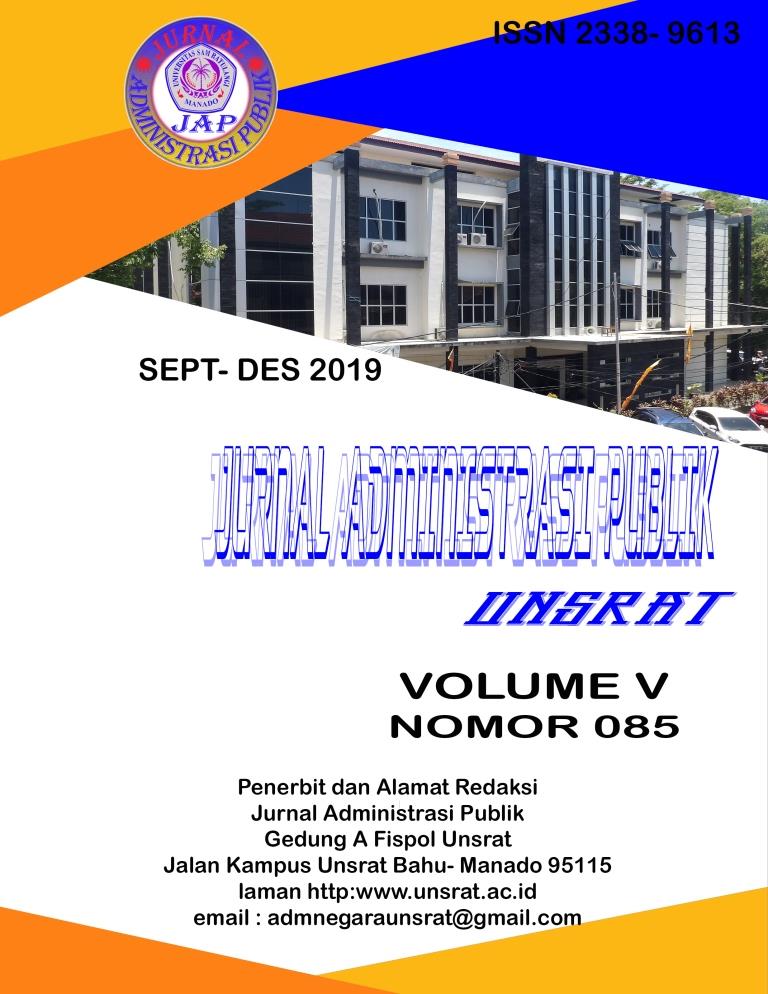PENGARUH REKLAMASI PANTAI TERHADAP KONDISI SOSIAL EKONOMI NELAYAN (STUDI KASUS KELOMPOK NELAYAN DI KAWASAN MEGAMAS)
Abstract
The aim of the research is to measure the impact of coastal reclamation on the social and economic
condition of fishermen in Sario Tumpaan. This research uses quantitative approach methods. The subject
of this study amounted to 30 of one group occupying the research site so that researchers took the
conclusion to give Kuisoner to the 30 subjects. Data collection uses questionnaires and interviews, while
the analytical techniques used are validity and reliability tests as well as the homogeneous test model
Ghozali, 2011. Based on the results of the research that has been done by the authors, it can be concluded
as follows: (1) based on the results of research that has been tested from some data with a population of 1
organization and there are 30 people who are respondents. The Data obtained is declared valid or normal
distribution so it is feasible to proceed with a simple linear regression analysis test. (2) The social
economic erdahap of the fishermen of the city of Manado Mega Mas has been carried out quite well, it is
seen from the results of the research scoring instrument that puts the reclamation variable to be in the
category quite good until good. (3) reclamation has a positive and significant relationship and influence
on the social economy of the fishermen Mega City of Manado, which means the reclamation variable is a
factor that determines the determinant of the socio-economic fishermen. The more Basar reclamation that
is done the greater also impacts on the social economy of fishermen of the Mega district Mas City
Manado.
Keywords: Reclamation, Social, Economic, Fishermen








